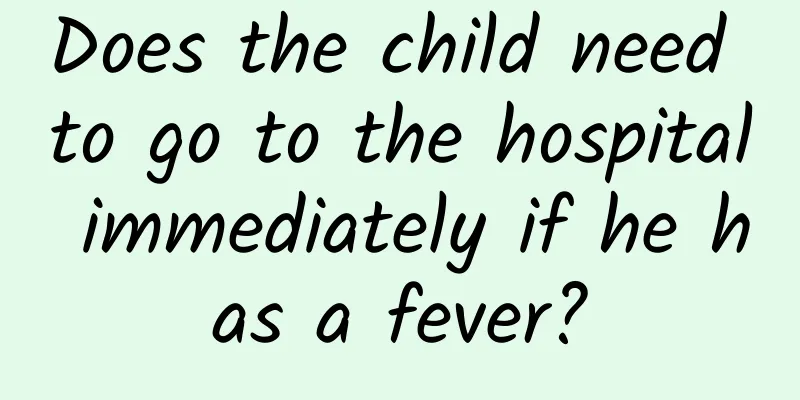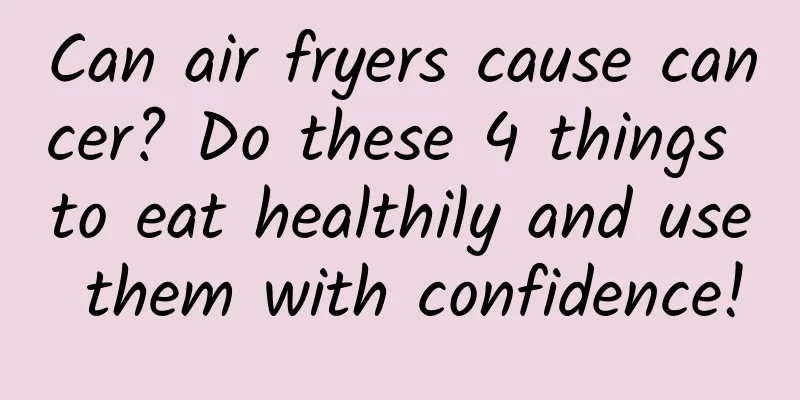Does the child need to go to the hospital immediately if he has a fever?

|
Recently, the number of patients infected with mycoplasma has been decreasing, but other respiratory viral infections such as influenza are on the rise. The influenza monitoring data of the Chinese Center for Disease Control and Prevention shows that the northern part of my country is still dominated by influenza A, with a small number of influenza B cases, while the proportion of influenza B is slightly higher in the southern part of China. In general, the current prevalent diseases are mainly common respiratory diseases such as mycoplasma infection, influenza, and adenovirus infection. What are the symptoms of different respiratory diseases? Common mycoplasma infections are generally more common in school-age children. Some older children have early symptoms of high fever and irritating dry cough. Mycoplasma pneumonia is often more common in older children, while influenza can occur in all age groups, but the main manifestations of different age groups may be different. The early symptoms of influenza are sudden high fever, often accompanied by systemic symptoms. Some older children may complain of headaches or muscle and joint aches. Younger children usually show that their mental state is different from before. Infants may become lethargic, have trouble feeding, or even move less, which requires the attention of parents. Adenovirus, rhinovirus, parainfluenza virus and other viruses are also common pathogens in respiratory tract infections. There are no specific treatments for these viral infections, and the main treatment is to observe the changes in the condition and symptomatic treatment. There are many types of adenovirus, and only some types of infection can cause relatively severe adenovirus pneumonia in children under two years old. Symptoms include persistent high fever, which is often not relieved after general treatment, accompanied by obvious changes in the respiratory system, such as labored breathing, obvious coughing and wheezing, and even lack of energy. This is where parents need to pay attention. Some older children may test positive for adenovirus. If there is no obvious lower respiratory tract infection, they can be treated symptomatically at home. Respiratory tract infection is a common disease in pediatrics. For most respiratory tract infections, symptomatic treatment is still the main treatment. Infants under three months old should seek medical attention immediately if they have a fever When a child has a fever or a fever accompanied by a cough, the first thing to do is to distinguish the age. If a younger infant, especially an infant under three months old, has an obvious fever, whether with or without respiratory symptoms, it is recommended that parents take the child to the doctor in time. If an older child, even one over school age, has a high fever with mild respiratory symptoms but no other symptoms, parents are advised to observe the child at home and use some symptomatic medication. If the child has a persistent high fever for 3-5 days, or has obvious worsening respiratory symptoms, or even other symptoms, parents are advised to take the child to see a doctor in time. Recently, many hospitals have launched Internet diagnosis and treatment, which can play a very good role under certain conditions. For example, children with long-term chronic diseases can use Internet diagnosis and treatment on the basis of previous regular treatment to reduce the number of visits to the hospital during the high-incidence season of respiratory infections and avoid the risk of cross-infection. In addition, for older children, if they only have symptoms of fever and cough, and have completed the necessary blood routine and other related examinations at the nearest hospital, if parents are still worried, they can consult online through Internet diagnosis and treatment. When the child's symptoms are significantly aggravated or accompanied by other systemic symptoms, it is recommended to seek medical treatment offline in a timely manner. (The author is the chief physician of the First Department of Respiratory Medicine at Beijing Children's Hospital) |
<<: Mixing cold medicines can be fatal
>>: With the coming of cold air, young people should also be alert to cerebral hemorrhage
Recommend
Infographic: Mobile coupons, a great way for users to save money
Smartphone applications make users love smartphon...
Methods for women to regulate endocrine
We all know that it is very important for female ...
Can you still eat Hami melon if it's a little rotten? How to store Hami melon
Hami melon has a rich variety of resources. The s...
How many days are there in 12 weeks of pregnancy
If the menstrual period is very normal, that is, ...
What is the probability of an incomplete abortion?
These issues are rarely discussed. What is the pr...
What are the dangers of anal fissure, defecation and anal pain after childbirth?
Giving birth can be said to cause great harm to a...
Can I eat mango during menstruation?
Mango is believed to be the most familiar fruit t...
If my period comes on the 15th, what is the ovulation date?
The ovulation period is something that women atta...
Can I drink beer in early pregnancy?
Even in the early stages of pregnancy, it is abso...
What brand is the ring given by the second male lead in Crash Landing on You? How much is the same engagement ring as Son Ye-jin's in Crash Landing on You?
In the latest episode of "Crash Landing on Y...
I didn't know I had sex in the early stages of pregnancy.
Although it can be said that ignorance is innocen...
What's the matter with the small amount of menstrual flow after weaning?
Many mothers will experience their first menstrua...
Pictures of the meat discharged by my aunt
Many women often find some fleshy things secreted...
Early symptoms of cervical erosion in women
As environmental pollution becomes increasingly s...
What to do if you eat after taking birth control pills
Taking emergency contraception is to prevent unex...









